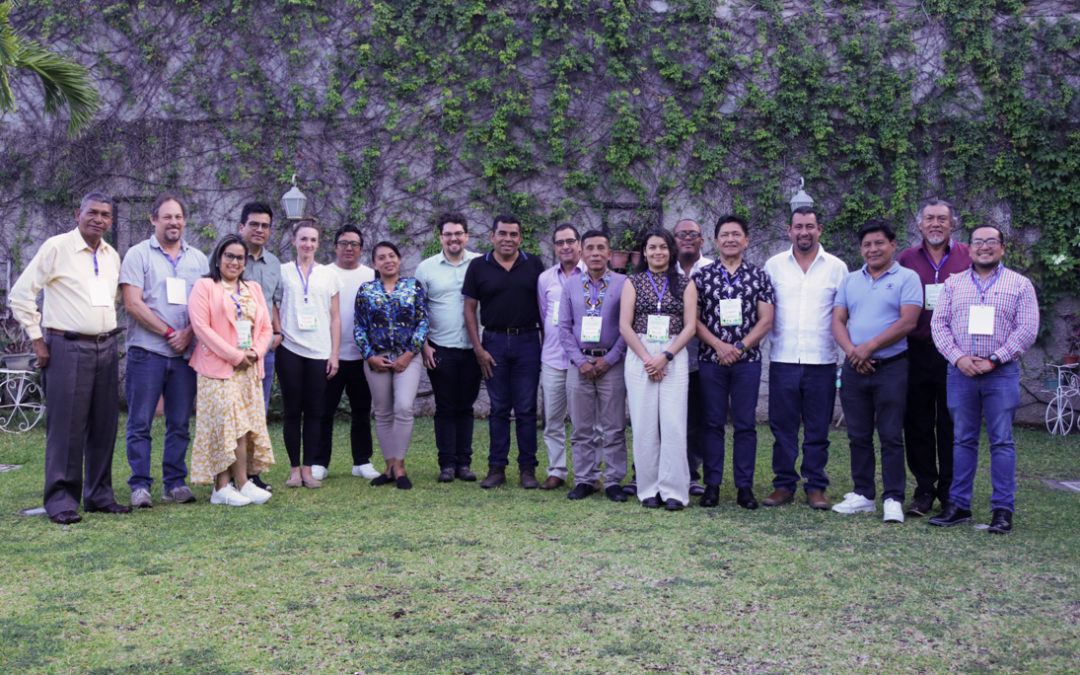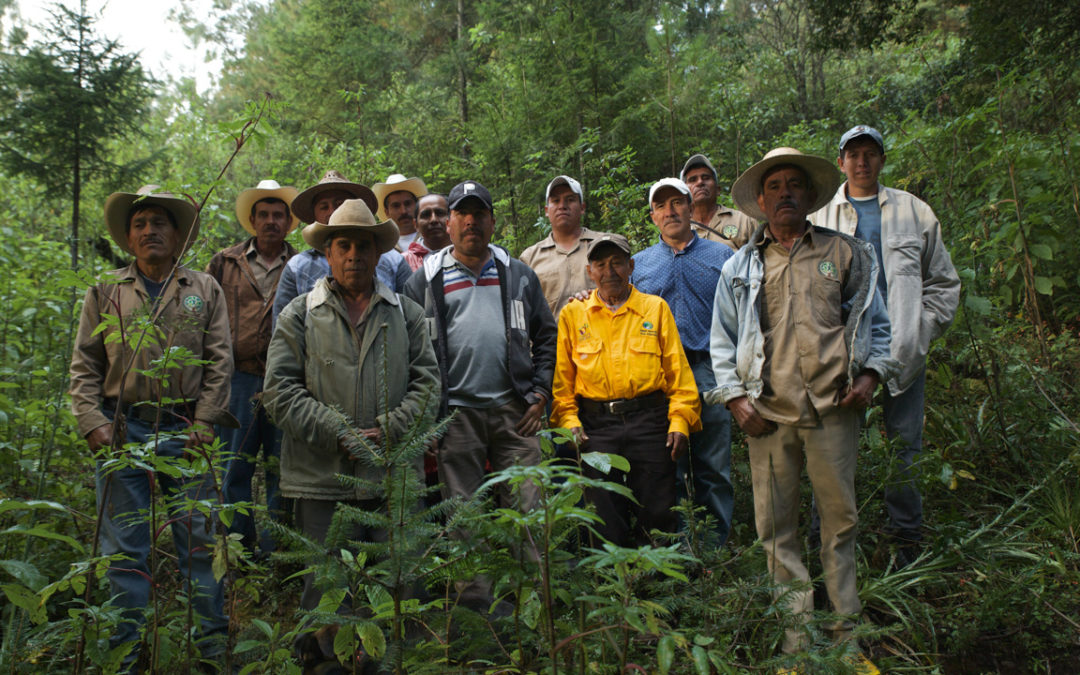Cándida Dereck, Miskitu Indigenous Leader and Amalia Hernández, Leader of the Lenca People are the representatives of the Coordinator of Territorial Women Leaders of Mesoamerica (CMLT), a coordination space between indigenous women and forest communities of the Mesoamerican Alliance of Peoples and Forests (AMPB) in the II March of Indigenous Women of Brazil that takes place today, September 10, 2021, within the framework of the Fight for Life Camp: The largest indigenous mobilization in history.
Cándida and Amalia, representing the Coordinator of Territorial Women Leaders of Mesoamerica and part of the Global Alliance of Territorial Communities, participate in this camp from September 7 to 11 with 4,000 women from more than 150 towns, from all biomes of Brazil and the Amazon Basin.
The National Articulation of Indigenous Women Warriors of Ancestrality (ANMIGA) carries out this second march of Indigenous Women of Brazil with the theme “Original Women: Reforesting minds for the cure of the Earth” in the space of the National Foundation for the Arts (FUNARTE ), in Brasilia.
“We seek to guarantee our territories for present and future generations, defending the environment, this common good that guarantees our ways of life as humanity. More than a physical resource, it is the site of the spirits of the forests, animals and the waters of life as a whole, source of our ancestral knowledge ”, reinforces the ANMIGA statement on the march.
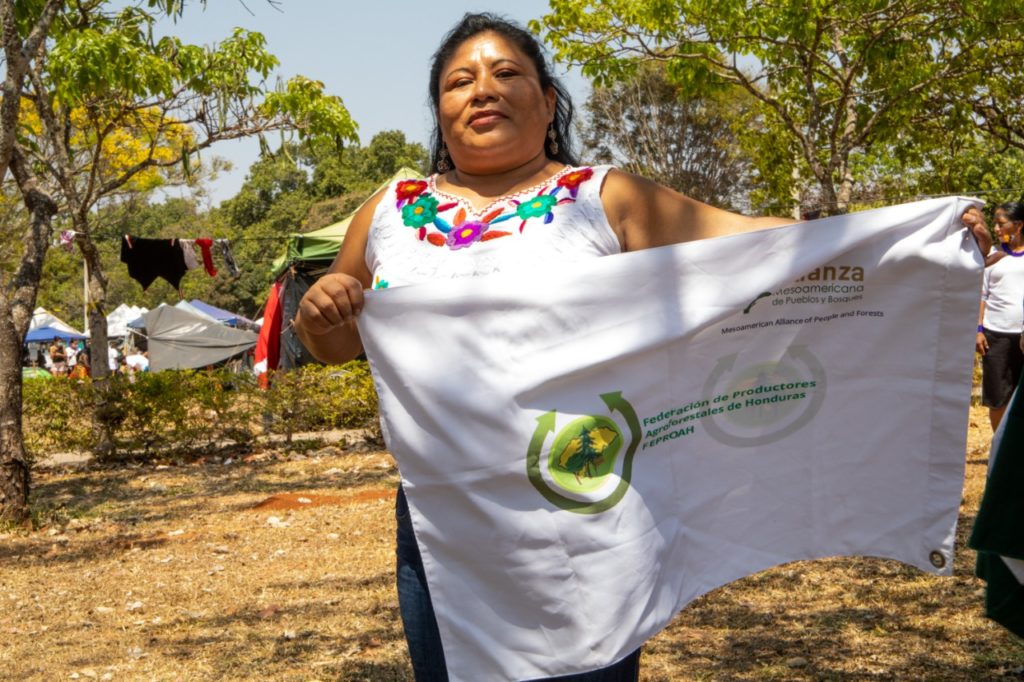
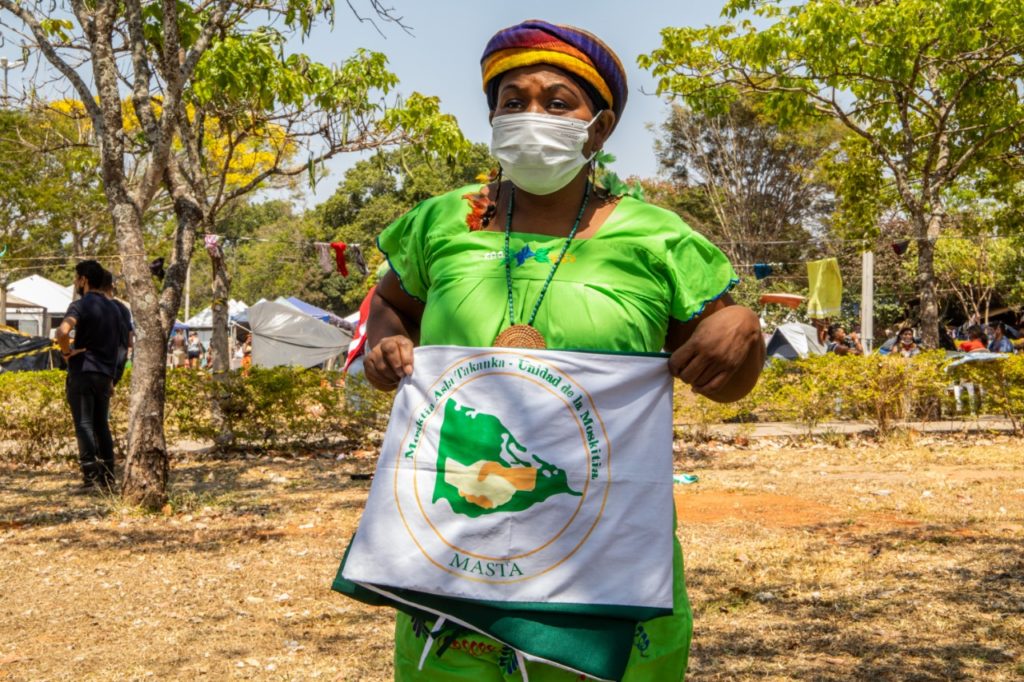
On the Women’s March
Since August 22, more than six thousand indigenous people, from 176 peoples, from all regions of the country, were present in Brasilia, gathered at the “Fight for life” camp, which is the largest mobilization in the history of the movement. indigenous. Headed by the Articulation of Indigenous Peoples of Brazil (APIB), in association with all its regional organizations, indigenous peoples are following the judgment of the Supreme Court of Brazil (STF) that will define the future of the demarcations of Indigenous Lands and also They protest against the anti-indigenous agenda of the Bolsonaro government and within the National Congress.
After the start of the trial, on August 26, and the announcement that it would resume this Wednesday (9/1), the indigenous people decided to maintain the mobilization in Brasilia and in the territories. Around 1,200 indigenous leaders, representing their peoples, remained in Brasilia and the “Fight for Life” camp was moved to a new location, Funarte.
The group will continue to follow the trial and join forces with the 2nd Indigenous Women’s March in a permanent mobilization proposal – the Indigenous Spring.
“We affirm that indigenous women will be in the front line to bury once and for all the thesis of the‘ temporal frame ’, during the II March of Indigenous Women,” emphasizes the coordination of ANMIGA.
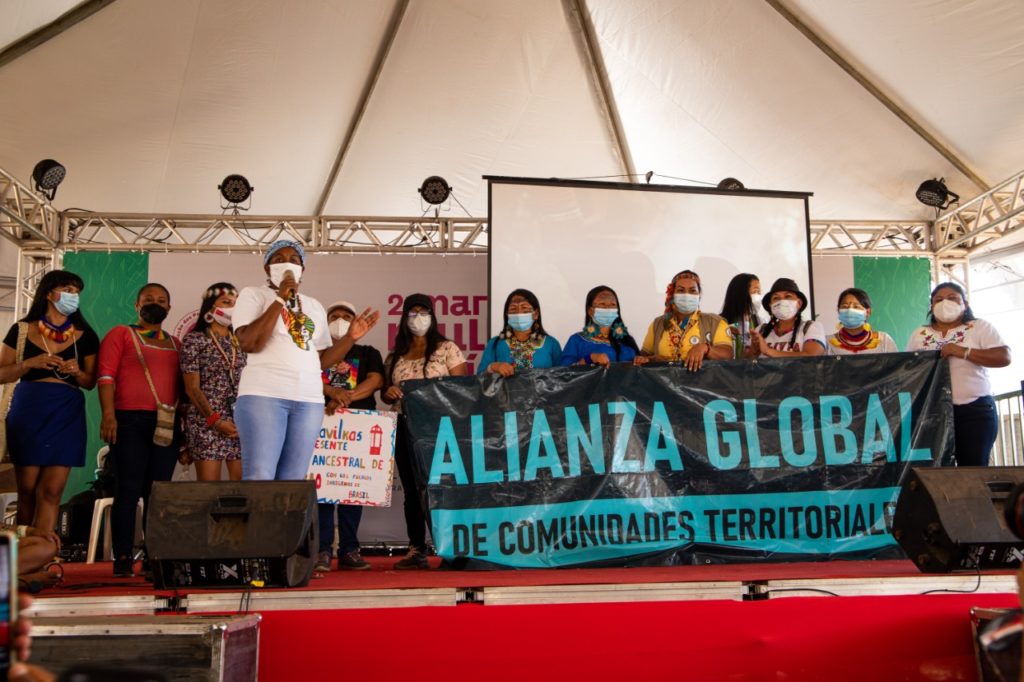
About the Global Alliance
The Global Alliance of Territorial Communities is a coalition of indigenous and local communities from the Amazon Basin, Brazil, Indonesia and Mesoamerica. Together we represent 35 million forest dwellers in 24 countries and 840 million hectares of forests. Four territorial organizations make up our alliance:), the Mesoamerican Alliance of Peoples and Forests (AMPB), the Coordinator of Indigenous Organizations of the Amazon Basin (COICA), the Articulation of Indigenous Peoples of Brazil (APIB, the Alliance of Indigenous Peoples of the Archipelago (AMAN) and the Network of Indigenous and Local Communities for the Sustainable Management of Forest Ecosystems in Central Africa (REPALEAC).
The leaders of the AGCT work in the coordination of spaces of political incidence to strengthen the protection of their territories, their cultures and their rights. For this reason, a delegation of territorial representatives accompanies this March in solidarity.
The international representation is made up of: Cándida Dereck, Miskitu People (Honduras), from the Coordinator of Territorial Women Leaders of the Mesoamerican Alliance of Peoples and Forests (AMPB) and the Gender Coordinator of MASTA (Muskitia Asla Takanka) who represents more of 90,000 Miskito inhabitants in Honduras, and of CONPAH, the Confederation of Indigenous Peoples of Honduras; Amalia Hernández, Pueblo Lenca (Honduras), President of the Federation of Agroforestry Producers of Honduras (FEPROAH) and representative of the Coordinator of Territorial Women of Mesoamerica, of the Mesoamerican Alliance of Peoples and Forests (AMPB) with more than 10 years at the helm organizational processes for community forest management and governance; Bernice Serataya, Chiquitano People (Bolivia), Gender Responsible for CIDOB, the Confederation of Indigenous Peoples of the East, Chaco and Amazon of Bolivia & Vice Coordinator of the Amazon Basin Emergency Fund and Lineth Calapucha, Kichwa People (Ecuador), Vice President of the Kichwa nationality of Pastaza PAKKIRU (Pastaza Kinkin Kichwa Runakuna) and member of CONFENIAE (Confederation of Indigenous Nationalities of the Ecuadorian Amazon).
Health measures
The mobilization was carried out for the first time in 2019, and virtually in 2020 due to the Covid-19 pandemic. The sanitary protocols of the second march reinforce all the existing and recommended norms to combat the coronavirus.
According to the organization of the march, the women’s delegations are aimed at prioritizing the participation of people who have completed their immunization cycle against Covid-19, with at least two doses of the vaccine, or with the single dose. The use of a mask during the activities is mandatory and the tests will be carried out from the arrival of the people to the event.
